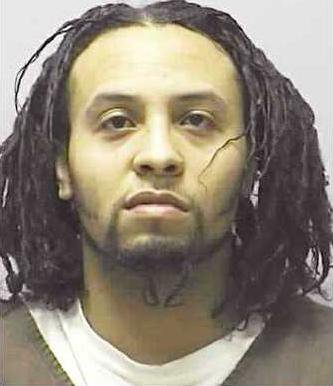TOPEKA — A divided Kansas Supreme Court Friday upheld by a vote of 4-3 the death sentence of Sidney J. Gleason in a capital murder case involving a 2004 double homicide in Barton County.
Gleason was convicted of killing Darren Wornkey and his girlfriend, Mikiala “Miki” Martinez, in what prosecutors charged was an attempt to threaten Martinez to keep her from telling police about an earlier armed robbery.
An accomplice in the killings, Damien Thompson, agreed to plead guilty to the first-degree murder of Martinez and testify against Gleason in exchange for a life sentence with no possibility of parole for 25 years. A jury convicted Gleason in 2006 of capital murder, premeditated first-degree murder, for killing Wornkey, aggravated kidnapping, aggravated robbery and criminal possession of a firearm. The same jury sentenced Gleason to death following a separate penalty-phase trial.
“The decision today affirms the conviction and death sentence based on a Barton County jury’s findings and moves this case along one step further,” Kansas Attorney General Derek Schmidt said Friday. “The wheels of justice are turning.”
In 2014, a majority of the Kansas Supreme Court upheld Gleason’s convictions, but ordered a new penalty-phase trial after it concluded the jury was not properly instructed about how to decide whether to recommend the death penalty.
The Kansas Attorney General’s Office asked the U.S. Supreme Court to review the Kansas Supreme Court’s decision. On Oct. 7, 2015, Schmidt argued the sate’s appeal to the U.S. Supreme Court, which on Jan. 20, 2016, ruled no Eighth Amendment violation had occurred and reversed the Kansas Supreme Court’s decision.
The U.S. Supreme Court returned the matter to the state high court for consideration of unresolved penalty-phase issues. Those remaining eight questions were decided against Gleason in the majority opinion written by Justice Dan Biles.
The court did not hold additional oral arguments in the case and considered the issues based on written briefs and its own research.
The issues decided include whether Gleason’s death sentence violates the Kansas Constitution when comparing it with his accomplice’s hard-25 life sentence, and whether a jury instruction error was harmless in light of the evidence against Gleason.
Justice Caleb Stegall agreed with the decision to uphold Gleason’s death sentence, but disagreed with some of the majority’s rationale in arriving at that conclusion. Justices Marla Luckert and Carol Beier dissented because they believed trial errors occurred after Thompson, Gleason’s accomplice, refused to testify at Gleason’s trial and that this required reversing Gleason’s murder convictions and holding a new trial.
In a separate dissenting opinion, Justice Lee Johnson criticized the majority for upholding Gleason’s death sentence, and said the ruling fails to meet what Johnson described as “the constitutionally required heightened reliability standard” for death penalty cases.
Gleason becomes the fourth person in Kansas whose sentence of death has been upheld by the Kansas Supreme Court since the death penalty was reinstated. The other three are Scott Cheever, John Robinson and Gary Kleypas.





